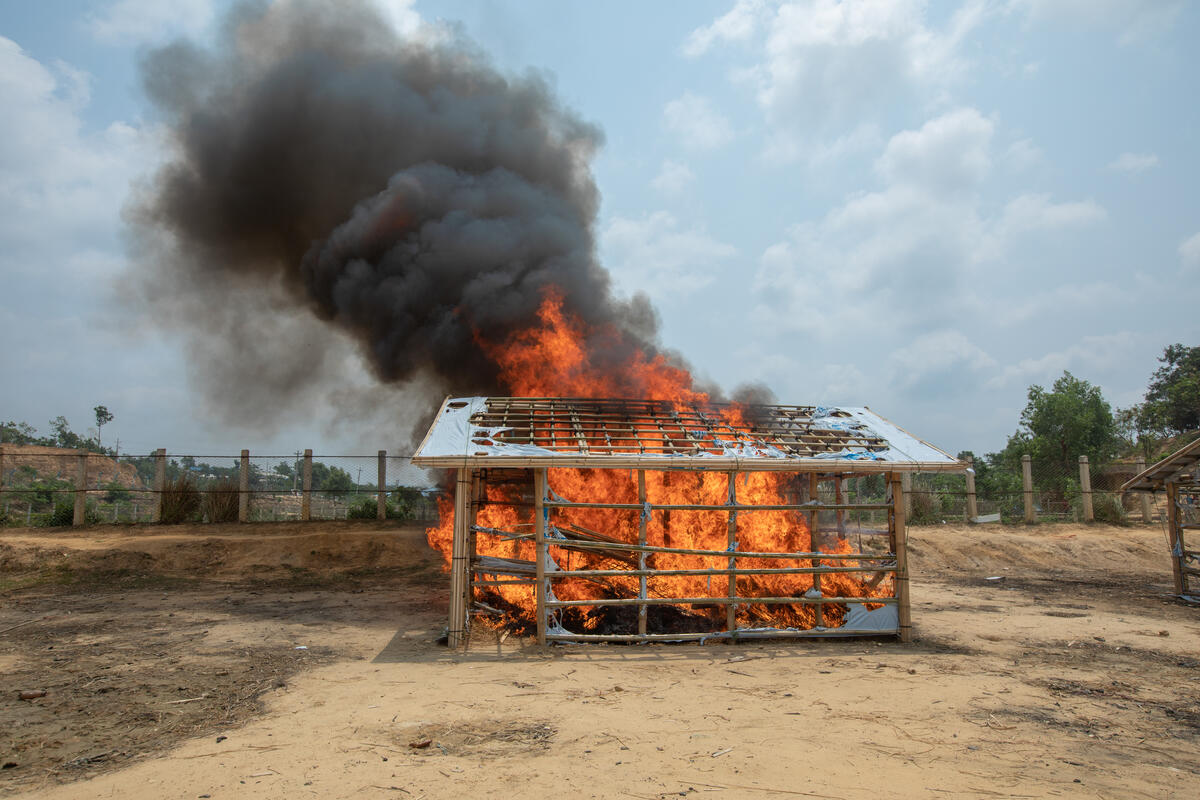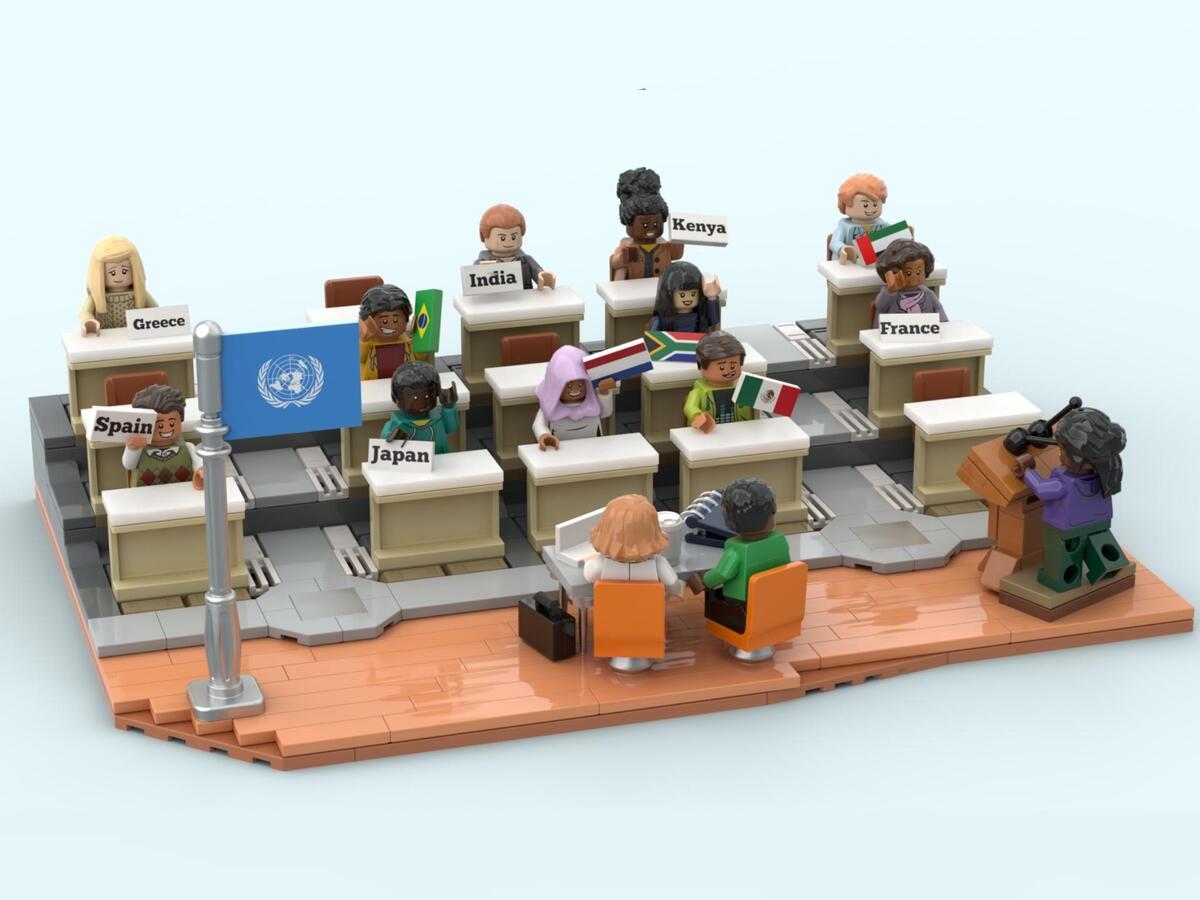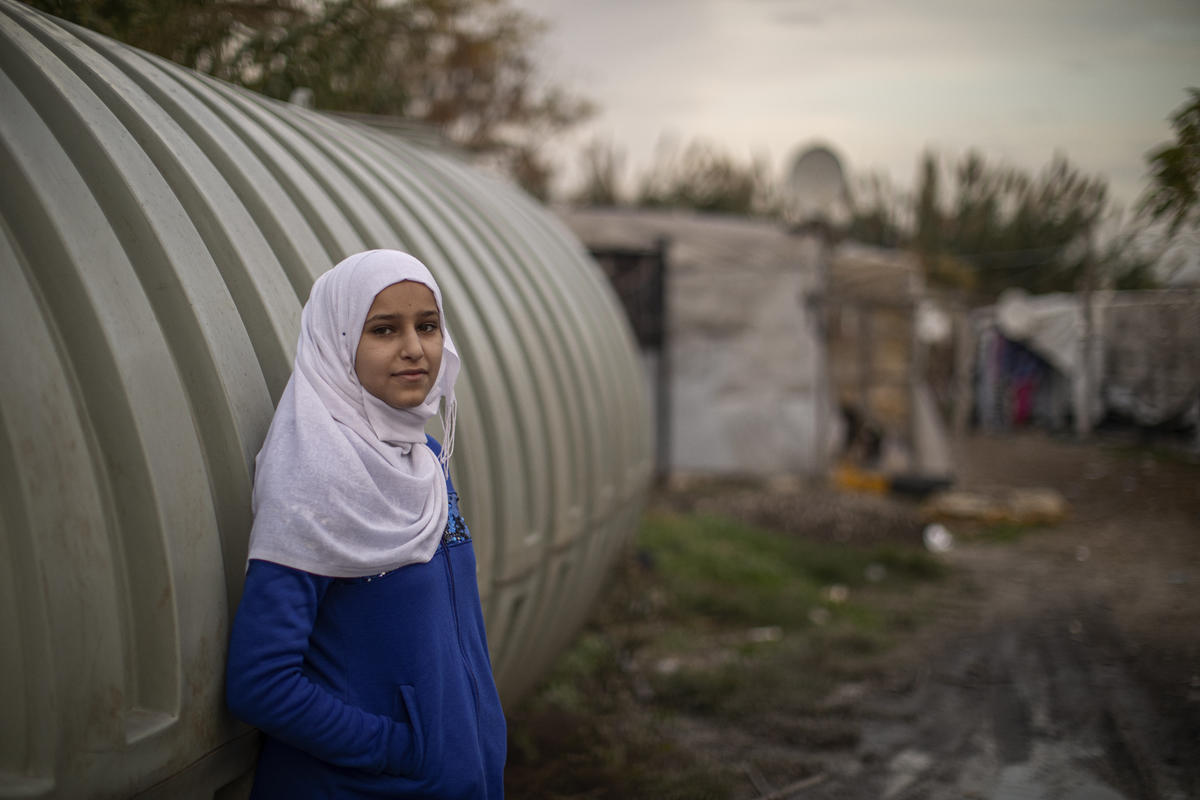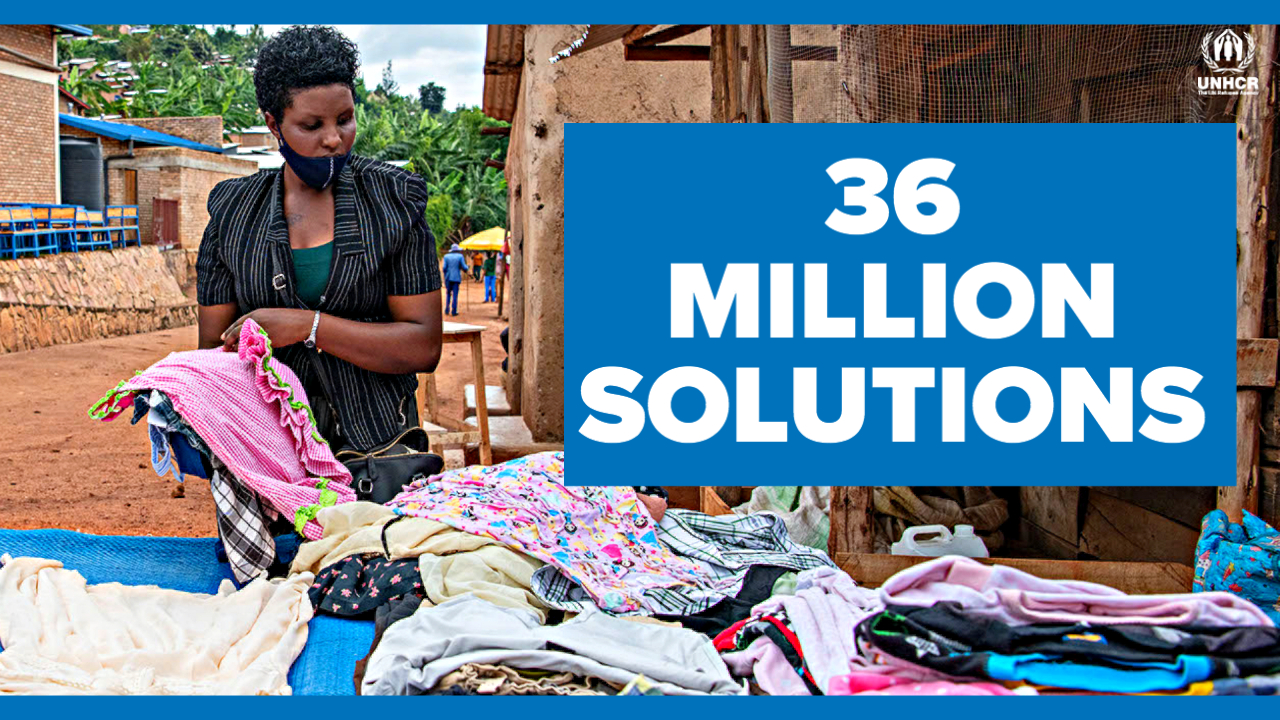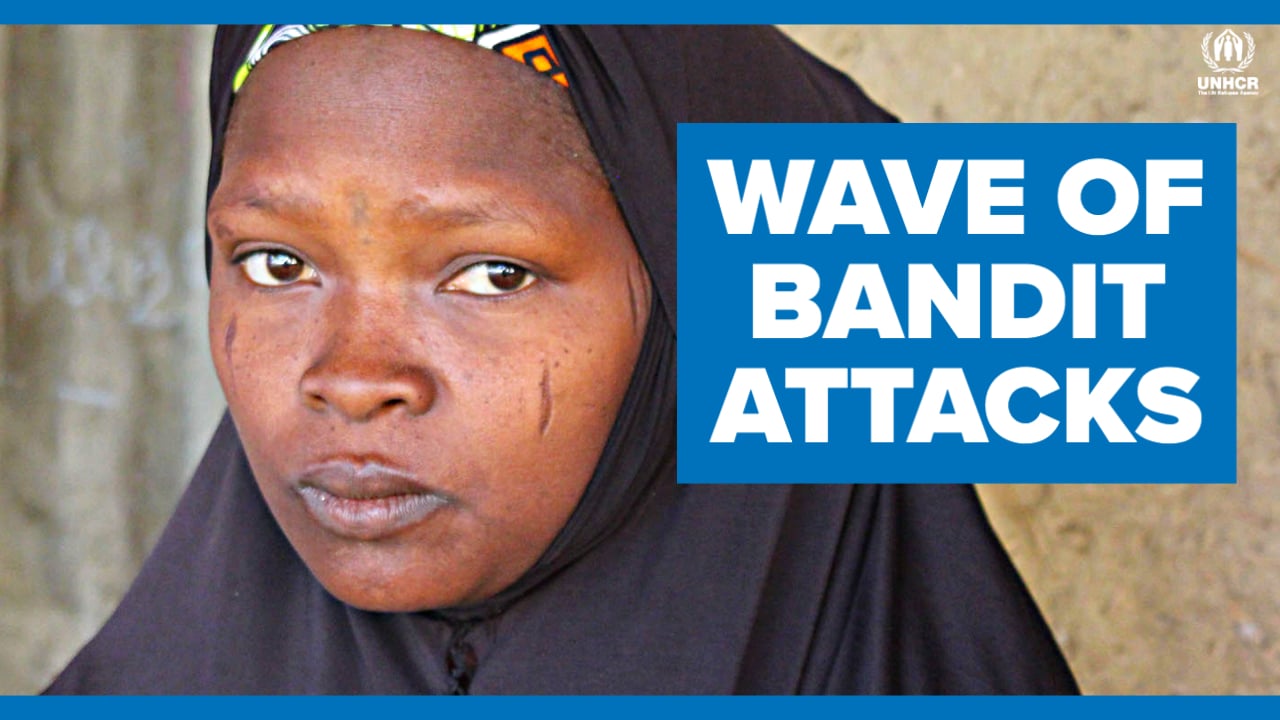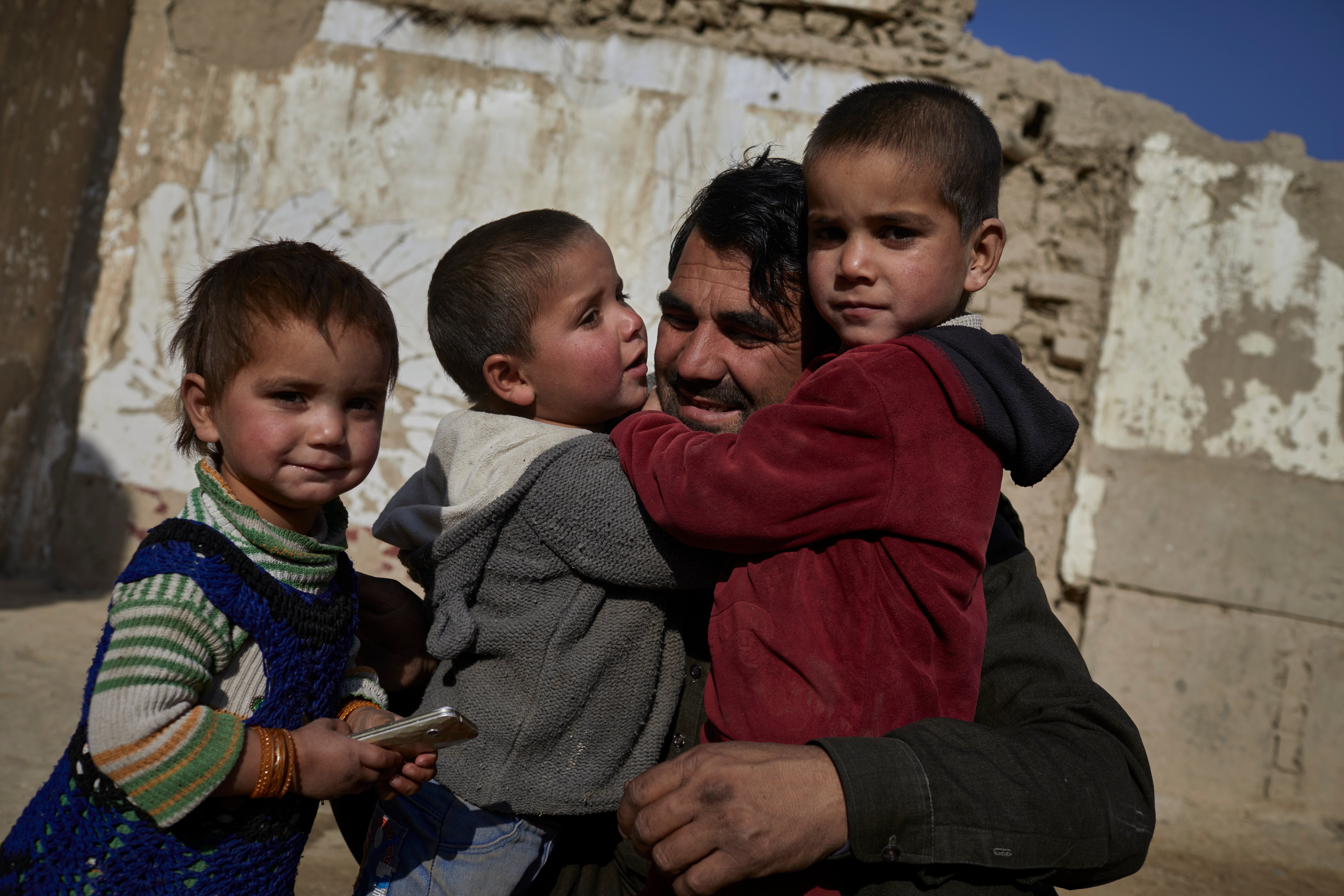Depression grips forgotten refugees stranded at Egyptian-Libyan border
Depression grips forgotten refugees stranded at Egyptian-Libyan border

SALLUM, Egypt, June 26 (UNHCR) - Around 9 a.m. Maha* went to the clinic in Sallum refugee camp just inside Egypt's border with Libya and doused herself with gasoline; only quick intervention by clinic volunteers stopped the Sudanese refugee before she could strike a match.
"I have nowhere to go and nothing to do. Life seems to have stopped in this place, we are in an invisible spot in the world and everybody turned their back on us," Maha told UNHCR after her suicide attempt.
Maha's despair is not unique. Since Sallum was established in the wake of the revolution in Libya to host people fleeing the growing violence, UNHCR was able to resettle some 900 refugees from the camp to third countries. But most of the current 900 refugees and 350 asylum-seekers at Sallum have found themselves in legal limbo.
Egypt, hoping to discourage the entry of more asylum-seekers from Libya, said anyone entering the camp after October 23, 2011 could not be proposed for resettlement to another country. And last December, the Egyptian government asked the UN refugee agency to stop registering those who reach Sallum from seeking refugee status. But more people continue to arrive and there are currently around 60 who are not registered and do not receive any assistance.
Maha, now in her late 40s, fled to Sallum with her husband on October 27, 2011 to escape violence and threats in Libya - just after the door for resettlement was closed.
It was their second forced displacement, having left Sudan after her husband escaped from an armed group that had conscripted him for a conflict in the Nuba Mountains. Maha and her husband had lived peacefully with other workers on a farm in Koufra, Libya until the revolution. Then they were attacked by revolutionaries who accused them of backing the late dictator Gaddafi - a charge often made towards sub-Saharan Africans living in Libya.
The woman's attempted self-immolation is just one example of the depression spreading among refugees at Sallum, who are all waiting between borders for a solution to their plight. UNHCR is hopeful of progress in negotiations with Egyptian authorities to resolve the situation.
"Operating and living conditions in Sallum camp are extremely difficult. We are working hard in order to be able to close the camp by the first quarter of next year. In the meantime, we hope to reach a common understanding with the Egyptian government on the asylum procedures for the remaining asylum-seekers," said Mohamed Dayri, UNHCR's Cairo-based regional representative.
After living for up to two years inside the camp, the strains of depression, anxiety, and insomnia are showing. These psychological problems have erupted into verbal and physical abuse against medical staff, as well as food distribution and protection teams of UNHCR by asylum-seekers who arrived after December 2012 when they could no longer be registered.
"The stress of having no hope or opportunity to solve their case is the reason for their act. Since we were asked not to register them, these people don't receive the daily meals and other assistance. Thus they tried to draw attention to their cases," said Dinesh Shrestha, head of UNHCR's Sallum office.
Aqwal Ding* is among those who cannot even apply for refugee status; she wonders if she made the right choice when she decided to come to Egypt, but does not know what else she could have done.
In 2010, her seven-year-old daughter Dalia was killed in Abyei, a border region between Sudan and South Sudan. Fearing more violence, she left Sudan with her husband and two remaining daughters and settled in Zawiya in western Libya.
One day during the Libyan war, her husband left the house to go to work and never came back. After months of waiting, Ding fled with her daughters to Egypt. On arriving in Sallum in December 2012, she found herself unable to leave the border camp to enter Egypt or to be proposed for resettlement; she is stranded.
"Refugees in Sallum are very anxious about the proximity of Libya and the idea of staying there indefinitely is unbearable. The uncertainty about their situation, having to wait in very difficult conditions adds to their despair," said Diane Tayeby, a psychological consultant hired by UNHCR to assess the mental state of some 40 refugees in the camp.
"Although these people have been let down so many times, they are still taking the risk to trust again when they step into the counselling room. I can still see a glimpse of hope in their eyes and I cling to this glimmer of light."
*Name changed for protection reasons
By Ahmad Abughazaleh and Dalia Al Achi in Sallum, Egypt

